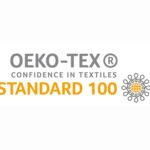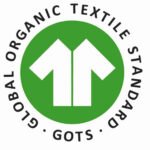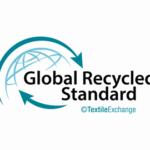Custom panties
Elevate Your Brand with Vacodo:
Your Premier Panties Partner

Vacodo stands at the forefront of panties manufacturing, setting itself apart as the ultimate choice for discerning businesses seeking unrivaled flexibility, control, and comfort in their products. Our unwavering commitment to excellence permeates every aspect of our meticulous material development process, guaranteeing unparalleled quality and customer satisfaction.
But we're more than just manufacturers – we're your partners in success. Whether you're embarking on a new venture or expanding your existing brand, we're devoted to helping you bring your vision to life. Through close collaboration with our clients and partners, we harness their ideas and ambitions to create authentic and superior product lines. Together, we drive brands forward, turning aspirations into tangible success stories.
Trust Vacodo to elevate your brand to new heights. Partner with us and experience the difference firsthand.
materials of custom panties

Cotton:
Known for its softness, breathability, and comfort, cotton is a popular choice for everyday wear.
Spandex or Lycra:
These stretchy materials provide flexibility and shape retention, ensuring a snug and comfortable fit.
Nylon:
Nylon panties are lightweight, durable, and often have a smooth, silky feel against the skin.
Microfiber:
This synthetic fabric is soft, lightweight, and moisture-wicking, making it ideal for active wear and preventing discomfort from sweat.
Lace:
Lace adds a touch of elegance and femininity to panties, often used as accents or overlays for aesthetic appeal.
Modal:
Modal fabric is derived from natural fibers, offering a silky smooth texture, excellent drape, and breathability.
Bamboo:
Bamboo fabric is eco-friendly, breathable, and hypoallergenic, making it suitable for sensitive skin types.
Satin:
Satin panties have a glossy finish and a luxurious feel, perfect for special occasions or when you want to indulge in a bit of luxury.
These materials can be used individually or in combination to create panties with various features and benefits to cater to different preferences and needs.
TYPES OF CUSTOM PANTIES
HOW TO CUSTOMIZE YOUR PANTIES
4 steps to customize your panties

1. Send your inquiry
Tell us your ideas or send product pictures, URLs, design drawings, etc. We’ll confirm with you lingerie styles, colors, sizes, fabrics, accessories, and so forth in detail.
2. Develop lingerie samples
Make the sample and send it to you. You can evaluate the lingerie quality and overall effect. Tell us your suggestions. Then, we modify it.
3. Start mass production
Place an order once you approve the sample. Then, we go to mass production and production follow-up.
4. Carry out QC before shipping
Conduct AQL sampling or one-by-one inspection before your items are shipped to your place as negotiated.
MANUFACTURING PROCESS OF CUSTOM PANTIES

Design Conceptualization:
Designers create sketches and conceptualize styles based on market trends, customer preferences, and brand identity.
Material Selection:
Procurement specialists source high-quality materials such as cotton, spandex, nylon, lace, or microfiber, ensuring they meet quality standards and design requirements.
Pattern Making:
Pattern makers develop templates based on the approved designs, considering factors like sizing, fit, and style variations.
Cutting:
Fabric is laid out in layers according to the pattern specifications, and then cut into individual pieces using automated cutting machines or manually by skilled workers.
Sewing:
Skilled seamstresses stitch together the cut fabric pieces using industrial sewing machines, following precise stitching techniques to ensure durability and comfort.
Assembly:
Different components such as waistbands, leg bands, and decorative trims are assembled onto the main body of the panties, either by machine or hand sewing.
Finishing Touches:
Quality control inspectors examine the finished panties for defects, ensuring that seams are secure, stitches are even, and measurements are accurate.
Labeling and Packaging:
Each pair of panties is labeled with care instructions, size, and brand information. They are then carefully folded, packaged, and prepared for shipping or distribution.
Quality Assurance:
Throughout the manufacturing process, quality checks are conducted at various stages to maintain consistency and uphold product standards.
Distribution:
Finished panties are distributed to retailers, wholesalers, or directly to customers, depending on the company's distribution channels and business model.
Inspection Process of Custom Panties

Initial Inspection:
Upon receiving the custom panties from the manufacturing line, quality control inspectors conduct an initial visual inspection to identify any obvious defects or irregularities in stitching, fabric, or construction.
Measurement Check:
Inspectors verify that the custom panties meet the specified measurements and dimensions outlined in the design specifications. This ensures consistency in sizing across the product range.
Fabric Quality Assessment:
Each pair of custom panties undergoes a thorough inspection of the fabric quality, checking for defects such as discoloration, pilling, snags, or uneven texture. Fabric samples may be tested for durability, stretchability, and colorfastness.
Stitching and Seam Inspection:
Inspectors examine the stitching and seams of the custom panties to ensure they are securely sewn, free from loose threads, skipped stitches, or uneven seams. This step includes checking the integrity of elastic bands, waistbands, and leg openings.
Decoration and Embellishment Evaluation:
If the custom panties feature decorative elements such as lace trim, embroidery, or appliqué, inspectors assess their placement, alignment, and overall quality to ensure they meet design specifications and enhance the aesthetics of the product.
Fit and Comfort Assessment:
A sample of custom panties may be worn or tested on fit models to evaluate comfort, mobility, and overall wearability. Feedback from fit tests helps identify any potential issues with fit or comfort that need to be addressed before final production.
Labeling and Packaging Check:
Inspectors verify that each pair of custom panties is correctly labeled with relevant information such as size, care instructions, brand logo, and any regulatory compliance labels. Additionally, they ensure that the packaging is intact, clean, and free from damage.
Final Inspection and Sorting:
After completing the individual checks, a final inspection is conducted to ensure that the custom panties meet all quality standards and specifications. Any defective or substandard items are sorted out for rework or disposal, while acceptable products are prepared for packaging and shipping.
CERTIFICATIONS

OEKO-TEX Standard 100
This certification ensures that textiles and fabrics used in bras meet strict human-ecological requirements and are free from harmful substances.

ISO 9001
ISO 9001 certification indicates that a manufacturer has implemented a quality management system to consistently provide products that meet customer and regulatory requirements.

ISO 14001
ISO 14001 certification demonstrates that a manufacturer has implemented an environmental management system to minimize the environmental impact of its operations, including the production of bras.

BSCI
BSCI certification verifies that a manufacturer adheres to ethical standards and social compliance requirements, including labor rights, health, safety, and environmental protection.

GOTS
GOTS certification ensures that bras made from organic fibers meet stringent environmental and social criteria throughout the entire production process, from harvesting to manufacturing.

GRS
GRS (Global Recycling Standard) is an international recycled materials standard designed to ensure that recycled materials are traceable, recyclable and sustainable throughout their supply chain. The standard applies to any product containing at least 20% recycled materials, including textiles, plastics, paper, etc.

CE
CE marking indicates compliance with European Union directives and regulations, ensuring that bras meet health, safety, and environmental protection standards for sale in the EU market.

REACH
REACH compliance ensures that bras meet regulations for the safe use and handling of chemicals in the production process.







